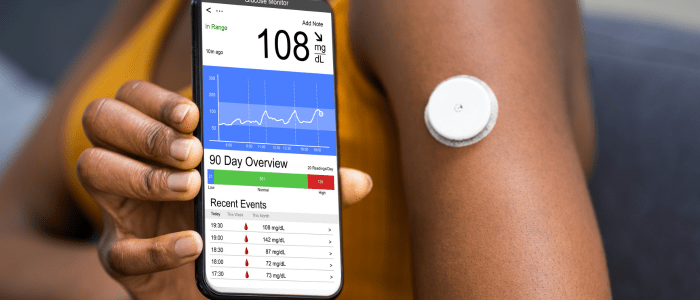HealthPartners Institute’s international diabetes center to uncover real-world evidence on the economic impact of continuous glucose monitors in type 2 diabetes management

With recent supplemental funding from the Patient-Centered Outcomes Research Institute (PCORI), HealthPartners Institute will expand clinical effectiveness research into the real-world economic impact of continuous glucose monitors (CGMs) on type 2 diabetes management, delving into ‘financial toxicity’ and how regional variations affect the financial strain of managing the disease.
HealthPartners Institute’s International Diabetes Center is undertaking a comprehensive evaluation of the economic burden of type 2 diabetes management, specifically examining the potential of CGMs to alleviate financial strain. Initially funded with $3.6 million, the study has received an additional $840,000 grant from PCORI, allowing researchers to expand the scope of the analysis to include patient-centered economic data alongside clinical and quality-of-life outcomes. This in-depth approach will provide a thorough assessment of CGMs in type 2 diabetes management.
Traditionally associated with type 1 diabetes, CGMs have shown promise in aiding type 2 diabetes management. This study will evaluate the clinical effectiveness of CGMs versus traditional finger-stick blood glucose monitoring, as well as investigate patient-centered economic outcomes. This approach will allow for a thorough investigation of the financial aspects of diabetes management, examining the ‘financial toxicity’ patients with diabetes often face, where financial pressures impact their disease management. Given the substantial financial burden of diabetes, with diabetic patients incurring more than double the medical expenses of those without diabetes, this study addresses the critical need to assess the comparative economic impact of monitoring technologies.
Dr Thomas Martens, Medical Director at the International Diabetes Center, underscores the complexity of diabetes management: “Diabetes takes a lot of work to manage, and when it’s not managed optimally, it can lead to costly complications.” The additional funds from PCORI will enable a nuanced assessment of costs related to medications, hospitalizations, and other potentially expensive complications, providing valuable real-world data on the economic aspects of diabetes management.
The researchers plan to assess financial toxicity measures developed for cancer patients and recently validated for diabetes. By evaluating out-of-pocket costs for patients with type 2 diabetes using CGMs versus those using traditional finger-stick glucose monitoring, and by considering factors such as zip code and socioeconomic data, the study aims to offer a nuanced understanding of regional variations in the financial strain of diabetes management. An advisory panel of individuals with type 2 diabetes will guide survey design, ensuring that both the clinical and economic aspects of using various monitoring technologies are captured, aligning the research with real-world experiences.
In adopting this comprehensive approach, the study seeks to guide strategies that alleviate the financial strain experienced by patients with diabetes, particularly those at greater risk and lower socioeconomic status. It will also provide patients and their caregivers with insights into the health and quality of life implications of different glucose monitoring options, drawing on real-world evidence to guide informed decision-making.
Want regular updates on the latest real-world evidence news straight to your inbox? Become a member on The Evidence Base® today>>>






